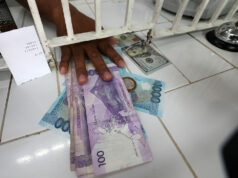Urban farming company seeking to help the poor one bayong at a time
UPROOT Urban Farms, a social enterprise, said its aim is to improve the lives of low-income families through urban farming.
Robi F. Del Rosario, founder of the Rizal-based company, started the business in 2016 when Uproot was chosen as one of the winners of the United Nations Development Program’s (UNDP) Hackathon for Food Security and Poverty Alleviation.
“The gains our country was making were not trickling down to the people at the bottom of the pyramid, or the ‘yung mga nasa laylayan” (the people on the fringes) were still being left behind,” he told BusinessWorld in an email.
Incorporated in 2017, Uproot aims to connect communities to businesses through its Corporate2Cultivate (C2C) program launched last February. Through establishing urban farms or grow hubs in these communities, they are taught alternative farming methods. They are then connected to businesses to sell their produce, which creates an economy that benefits all stakeholders, as well as the environment.
“C2C engages socially-aware corporations to provide their employees access to our healthy vegetable subscription, improving workplace nutrition and creating a circular economy where everybody you, the consumers, our communities, and the environment win,” he said.
The group offers three bayong, or market basket, packages: the bahay kubo bayong, which has eight to 10 various seasonal vegetables; the heirloom bayong with heirloom lettuce, kale, cherry tomatoes, and zucchini; and the juicing bayong with carrots, cucumber, kiwi, lemon, kale/swiss chard, and sugar beets.
Since the launch of C2C program, it has delivered about 80 kilos of harvest per week, engaged three local communities and two farmer cooperatives in Calabarzon. Of the three communities, the company is working with 24 mothers grouped in three groups.
“We have helped improve the earnings of our partner growers from zero to an average of 6,000 per month working for 4-5 hours per day from planting the seeds, transplanting, checking of the aquaponic system water parameters, harvesting, sorting, and packing,” Mr. Del Rosario said.
It has also partnered with four companies, like the Bank of the Philippine Islands (BPI) Foundation and 232 customers.
Through the program, it has also eliminated the use of over 5,000 pieces of single-use plastic that are used in vegetable packaging through its Back2Basics packaging using banana leaves.
This year, the company aims to increase its subscription base from an average of P200 per month to P1,000 per month, growing two tons of high-value crops monthly. It is also seeking for an investment of P8 million for a 15% stake, the bulk of which will be used to achieve the establishment of 10 grow hubs by the end of the year in key areas like Pasay City, Taguig City, Makati City, San Juan City, and Pasig City. — Vincent Mariel P. Galang



